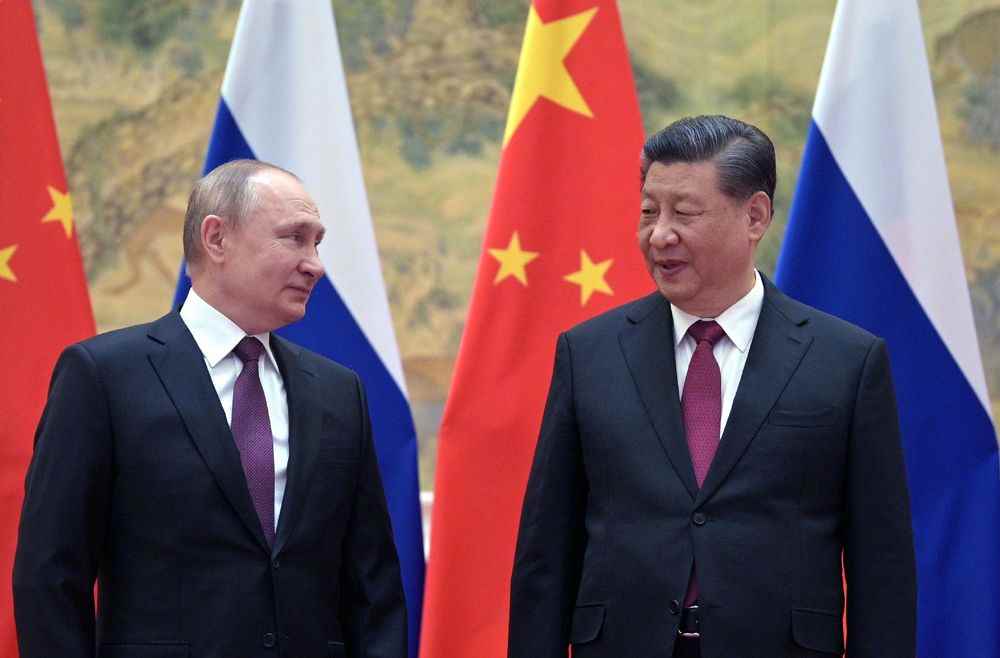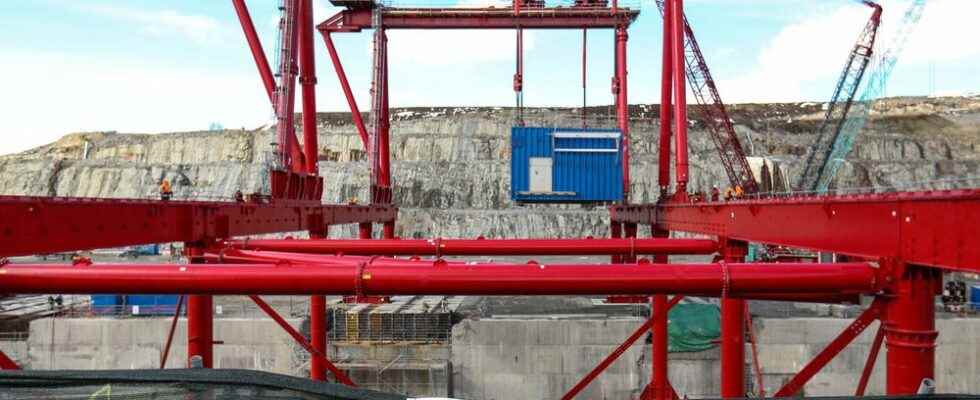It is the project of all superlatives, starting with its cost: 21 billion dollars. Arctic LNG 2, in Siberia’s Gydan Peninsula, where temperatures can drop to -60°C, was due to start delivering liquefied natural gas (LNG) in 2023 and reach full capacity three years later. production – almost 20 million tons per year. With the outbreak of war in Ukraine, this objective seems illusory. Under pressurethe French energy giant, Total, signaled at the end of April “the beginning of a decline”, announcing the depreciation of 4.1 billion dollars of assets concerning in particular the Arctic LNG 2 project, of which the major holds 10% .
Russia may claim that it can do without Westerners, but the sanctions provoked by Vladimir Putin’s offensive against its Ukrainian neighbor are seriously undermining its ambitions in the Arctic, where it finds itself isolated as never since the fall of the USSR. Without Western financing and technologies, it is difficult for it, henceforth, to consider taking full advantage of its precious El Dorado, in the basement rich in raw materials.
Of the three Arctic LNG 2 production plants, only the first is nearing completion. But nothing says that it can be started next year. “Russia does not master the liquefaction of gas, a complex process, and depends entirely on the technologies provided by the German company Linde, explains Florian Vidal, researcher at Ifri and specialist in the Russian Arctic. However, he is not certain that all the components of the first unit can be delivered to him.”
Installation of a module of the Arctic LNG-2 natural gas liquefaction plant, on the dry dock of the LNG construction center in Belokamenka, Murmansk region, Russia.
PAVEL LVOV / SPUTNIK / SPUTNIK VIA AFP
And for good reason: the European sanctions do not only concern future equipment contracts, but also those in progress. The Russian daily Kommersant clarified that goods ordered before the war were not allowed to reach Russia until May 27 at the latest. “To this is added another risk for Moscow, the inability to be able to obtain spare parts in the event of a problem on a site which is already running like Yamal”, underlines Florian Vidal. Inaugurated in 2017, on the peninsula opposite that of Arctic LNG 2, Yamal produces 16.5 billion tonnes of LNG per year.
Moscow turns to Beijing
The only solution for Vladimir Putin: find other partners. Assuring that alternative “opportunities” are opening up, the Russian president said mid-April want to “engage more actively in Arctic cooperation with countries and alliances outside the region”. A call from the foot, without naming them, to India and, above all, to China. “After the annexation of Crimea in 2014, Beijing saved the Yamal project by replacing the Western investors who had deserted the project, with the exception of Total”, recalls Olivier Truc, author of the documentary China in the Arctic, behind the scenes of an ambitionbroadcast on Arte.
As a good ally, China did not denounce the Russian invasion of Ukraine. But she is careful not to respond favorably to Moscow’s appeal. “They only invest when it is quickly profitable and are therefore cautious, especially since they do not have the technologies to replace Westerners, notes Florian Vidal. This is why Total and Technip, the French group specializing in LNG plants, were so important in gas projects.”

Chinese President Xi Jinping receives his Russian counterpart Vladimir Putin in Beijing on February 4, 2022.
afp.com/Alexei Druzhinin
Oil remains. Despite the sanctions, the Kremlin intends to pursue Vostok Oil, Rosneft’s major project in Siberia, less dependent on Western technologies in its implementation. It must guarantee, in the long term, new revenues for the State, while the hydrocarbon deposits of the Volga and Western Siberia are all in decline. But the project risks being slowed down by the fact that the Russians have been struggling to find takers for their oil in recent weeks. Added to this is the fact that Moscow often depends on Western intermediaries, such as the Swiss Trafigura, Vitol and Glencore, who withdraw from its market.
China certainly has an ogre appetite for oil. But the United States warned that it would face sanctions if it provided economic support to Russia. And, for the time being, the Chinese public refineries refrain from increasing their purchases of Russian crude oil (private refineries have fewer scruples). A wait-and-see attitude that could hide other aims: “For the Chinese, Russia is a reservoir of raw material, they are waiting for it to fall like a dried fig in their basket, argues Olivier Truc. In the Arctic, they have time for them.”
The Arctic Council on hold
In the Arctic, Moscow’s isolation is also institutional. Seven of the eight member countries of the Arctic Council (Sweden, Denmark, Finland, Iceland, Canada, Norway and the United States) have canceled their participation in the next meetings within the framework of this intergovernmental forum. dedicated to the research and protection of the region, whose rotating presidency is held by Russia. “This is a first, because even in 2014, after the annexation of Crimea, cooperation had continued”, underlines Emilie Canova, doctoral student at the University of Cambridge and director of the Nordic program of the Group of geopolitical studies.
As a result, the working groups of the Arctic Council are at a standstill, in particular those devoted to the assessment of environmental damage. “However, the sharing of data in this area is crucial for measuring the effects of global warming, which is much faster in the polar zone”, recalls Emilie Canova.
Will the Arctic Council survive this crisis? Relations between Russia and other countries could continue to be strained if Finland and Sweden join NATO, of which Denmark, Iceland, Canada, Norway and the United States are already members. “The Arctic is no longer protected from geopolitical tensions, it is no longer this exceptional zone where other cooperation is possible, in certain areas”, notes Florian Vidal. A coveted region too, where military logic could also take precedence over everything else.
